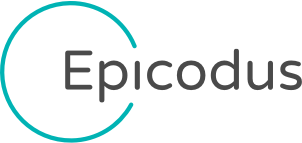Helping our students find great jobs is a huge part of what we do at Epicodus. In fact, it’s our mission. Over the years, we’ve accrued quite a bit of job-hunting knowledge to help set our students apart. In the next few weeks, we’ll be sharing our best tips and tricks for junior developers who are looking for their first jobs.
A good cover letter will show your interest in the company, show that you understand their needs, and give examples of what you've done that demonstrate how you can fit those needs. Every company treats cover letters differently, and you may hear lots of conflicting advice about how to write them. Below, we're going to share what we've found works best for most Epicodus students, for most of the jobs and internships they apply to. This advice is based on the experience of many of Epicodus graduates and conversations with dozens of companies.
Because every company is different, and every job has different needs, every cover letter should be different! Before you even start writing your cover letter, you should research the company enough to answer questions like: "Why do you want to work here?" and "What about our company excites you?"
That said, every cover letter you write for jobs after code school should lay its paragraphs more or less as described below. If you're a strong writer, feel free to take some creative license here; if writing isn't your strong suit, you'll probably want to stick closer to these guidelines. The examples below are adapted from actual Epicodus students.
First paragraph: State the position you are applying for, tell why you are interested in the position and/or the company, and give a quick overview of why you are qualified. For example:
I am writing to apply for the Web Developer Intern position. Culture Foundry excites me on many levels. For example: music advocacy is a subject that is near and dear to me, having been a professional musician for a number of years and experiencing the evolution of the music business first hand. The musician pages displayed on your site are simply stunning! I think that the full-stack development skills I've gained in my recent schooling and internship, and my background first working in technical support, would make me a great fit for your internship position.
Second paragraph: Tell your pre-code school story: how you became interested in development, and the non-technical skills you picked up before school. Make sure these non-technical skills match the non-technical skills the job description requests.
Before starting school at Epicodus to become a web developer, I worked in customer service and ended up at two online music tech companies, back-to-back. I quickly became immersed in troubleshooting user interface issues, and even taught myself a bit of code to help improve the company’s site and client experiences. Besides the obvious need to be an effective communicator, I was regularly challenged to think outside of the box. If someone wrote into support it almost always meant they were struggling with something. While working at Bandcamp, a local non-profit music foundation wrote into support feeling very unsure how to go about using our service as a tool to benefit their cause. I set a time to meet with them in person (as a remote email support personnel, this was unusual), show them the ropes, and even provided the foundation with a charity rate earning them even more proceeds. They thanked me profusely for going above and beyond to help, and I was happy knowing that I left them feeling empowered.
Third paragraph: Talk about your experience at code school, and make sure to match the skills you talk about with the skills listed in the job description.
I enjoyed my customer service work, but I often found myself gazing longingly at the developers, imagining a gratifying and stimulating job solving tough problems and building tools that made a lasting difference. This past April, the path became clear for me to pursue a job in coding, and in July, I enrolled in Epicodus's web development program. After dedicating four months of forty plus hours a week learning numerous programming languages and tools, I consider myself a full-stack developer, and am equally comfortable developing Ruby on Rails backends as working with JavaScript and jQuery in the front-end. But the biggest skill I learned since joining the coding world is how to take a brand new tool or language and have it feel like an old friend. For example, at my recent internship at Company X, their client-side was built with an MVC library I had never seen before, but by the third day of my internship, I was comfortable using it and committing code to production.
Fourth paragraph: Close out with a short summary of why you're a good fit, and thank them for reviewing your application.
Between my breadth of experience in the music realm and newly found fervor for programming, and your company’s passions and aesthetics, I believe I am a perfect fit for your Web Developer Intern position. I know we could benefit each other greatly, if given the opportunity. Thank you for reviewing and considering my application. I'm looking forward to hearing from you!
In talking about your experience, the most important thing is to provide examples. In the above example, the author says she's somebody who thinks outside the box, but it's even better that she gives an example of how she took an unusual support request and took the unusual step of meeting in person. And when talking about her development experience, she says she's a able to pick up new languages and tools quickly, and then goes on to provide an example of committing code within a couple days of learning a new MVC library.

